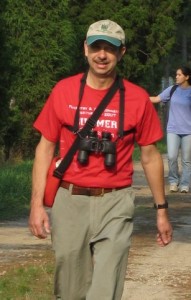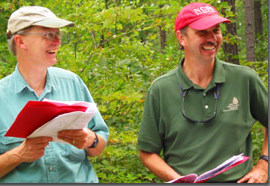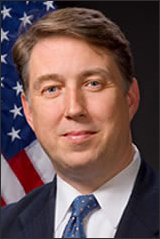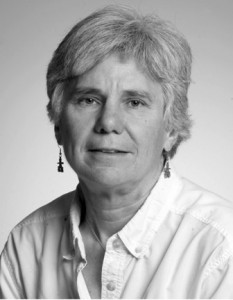Professor Emeritus H. Lee Allen is the 2010 recipient of the Barrington Moore Memorial Award in Biological Science from the Society of American Foresters (SAF). This prestigious award recognizes outstanding achievement in biological research leading to the advancement of forestry.

Lee as faculty participant of the Forestry and Environmental Resources' Exploration Camp for high school students
During his 30 years of service to NC State University, the College of Natural Resources, and the Department of Forestry and Environmental Resources, Lee has been a devoted teacher and eminent researcher. In 1998, Lee was made the C.A Schenck Distinguished Professor of Forestry and Environmental Resources. He was honored in 2007 with the Alexander Quarles Holladay Medal of Excellence, the highest award made by the University in recognition of faculty achievement.
“I can’t think of a more deserving individual,” said Department Head Barry Goldfarb about SAF’s choice for the award. “Lee’s career has transcended the typical academician. While he is a great teacher, he has also left a legacy of students who have gone on, themselves, to have distinguished careers.”
Much of Lee’s research effort was focused around the scientific and administrative leadership of the Forest Nutrition Cooperative. Under his leadership, the Cooperative grew from being a regionally based fertilizer cooperative into an internationally recognized silviculture research and education partnership. The Cooperative involves students, staff and faculty at NC State, Virginia Tech, and the Universidad de Concepcion in Chile, as well as more than 40 supporting members around the world, representing forest industry, consulting firms, TIMOs and public agencies that manage over 24 million acres of pine and broadleaved plantations in the Southeast US and Latin America.
Lee has and continues to make a huge impact on how plantation forestry is practiced. With his mantra that “leaves grow trees and resources grow leaves,” he has demonstrated that with appropriate silvicultural treatments, potential productivity on most sites is much higher than previously realized. He has helped forest managers from around the world to recognize that active management of both the plant and the soil resource are required to optimize value production. As Barry explains, “While he was a very productive researcher, he always made it a point to make sure that his research was relevant to forest management. Thus, his impact on the profession and practice of forestry has been profound.”
“I am very pleased and honored to be recognized by my colleagues with this award,” said Lee. “Working at NC State has rarely been work – much more an avocation. I have been able to continue to learn and grow personally and professionally, and I have been able to work in an area of great personal interest. I have had lots of fun and have had the opportunity to work with and for many wonderful and dedicated people.” Previous recipients of this award from NC State include Bruce Zobel (1968), Charles Davey (1982), Robert Kellison (1997) and Ellis Cowling (2000).
Lee will be presented with the award and $1,000 honorarium Thursday, October 28, during the opening general session of the SAF National Convention in Albuquerque, New Mexico. We are very proud that he will also be attending the Wolfpack Alumni Luncheon during the convention, Thursday, Oct. 28, 11:30-1:15, in the Ruidoso room. Lee received his BS and MS degrees from the University of Maine, and his PhD from North Carolina State University in 1981.
About SAF:
The Society of American Foresters is the national scientific and educational organization representing the forestry profession in the United States. Founded in 1900 by Gifford Pinchot, it is the largest professional society for foresters in the world. safnet.org





